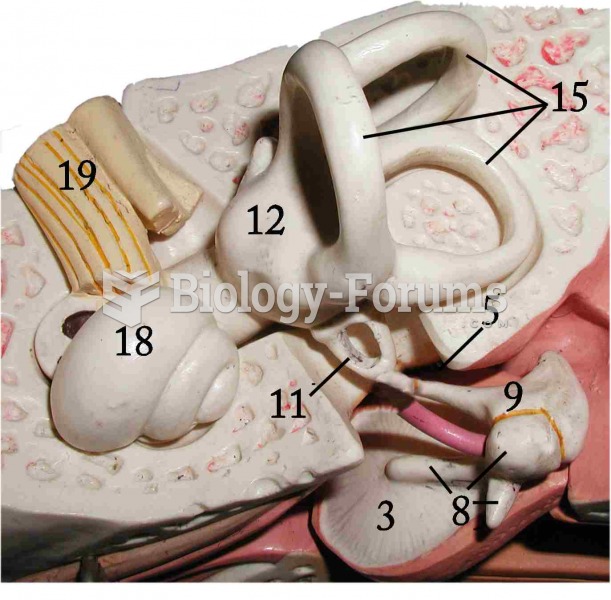|
|
|
Chronic necrotizing aspergillosis has a slowly progressive process that, unlike invasive aspergillosis, does not spread to other organ systems or the blood vessels. It most often affects middle-aged and elderly individuals, spreading to surrounding tissue in the lungs. The disease often does not respond to conventionally successful treatments, and requires individualized therapies in order to keep it from becoming life-threatening.
Barbituric acid, the base material of barbiturates, was first synthesized in 1863 by Adolph von Bayer. His company later went on to synthesize aspirin for the first time, and Bayer aspirin is still a popular brand today.
The modern decimal position system was the invention of the Hindus (around 800 AD), involving the placing of numerals to indicate their value (units, tens, hundreds, and so on).
Increased intake of vitamin D has been shown to reduce fractures up to 25% in older people.
Certain topical medications such as clotrimazole and betamethasone are not approved for use in children younger than 12 years of age. They must be used very cautiously, as directed by a doctor, to treat any child. Children have a much greater response to topical steroid medications.
 Model of a sequential study in which two cohorts were followed beginning at age 20. One cohort was f
Model of a sequential study in which two cohorts were followed beginning at age 20. One cohort was f
 In 2013, Americans learned that the federal government massively surveys their phone calls and e-mai
In 2013, Americans learned that the federal government massively surveys their phone calls and e-mai





